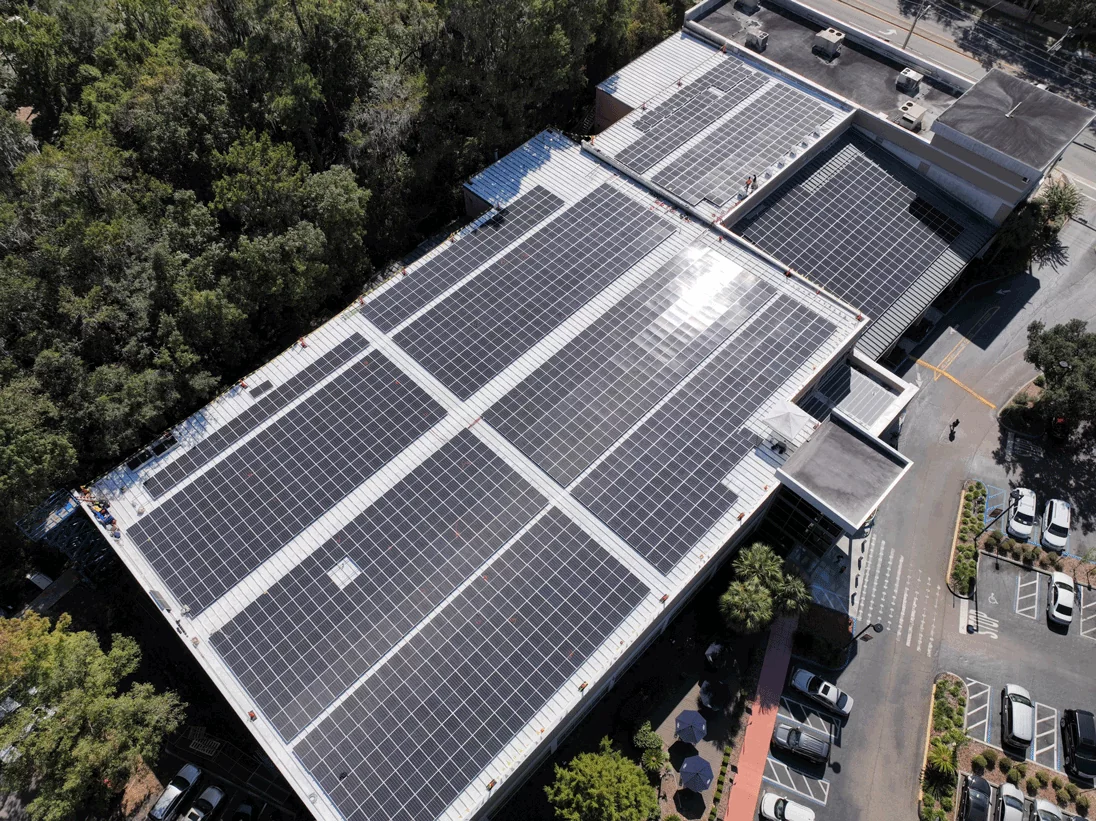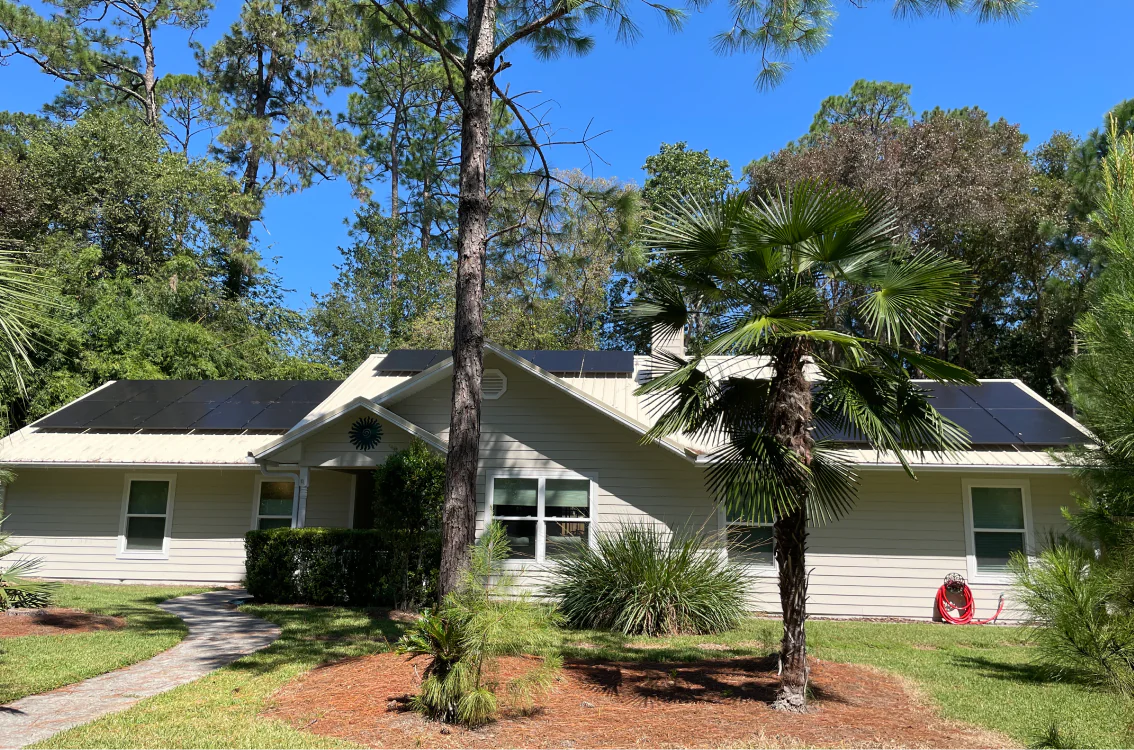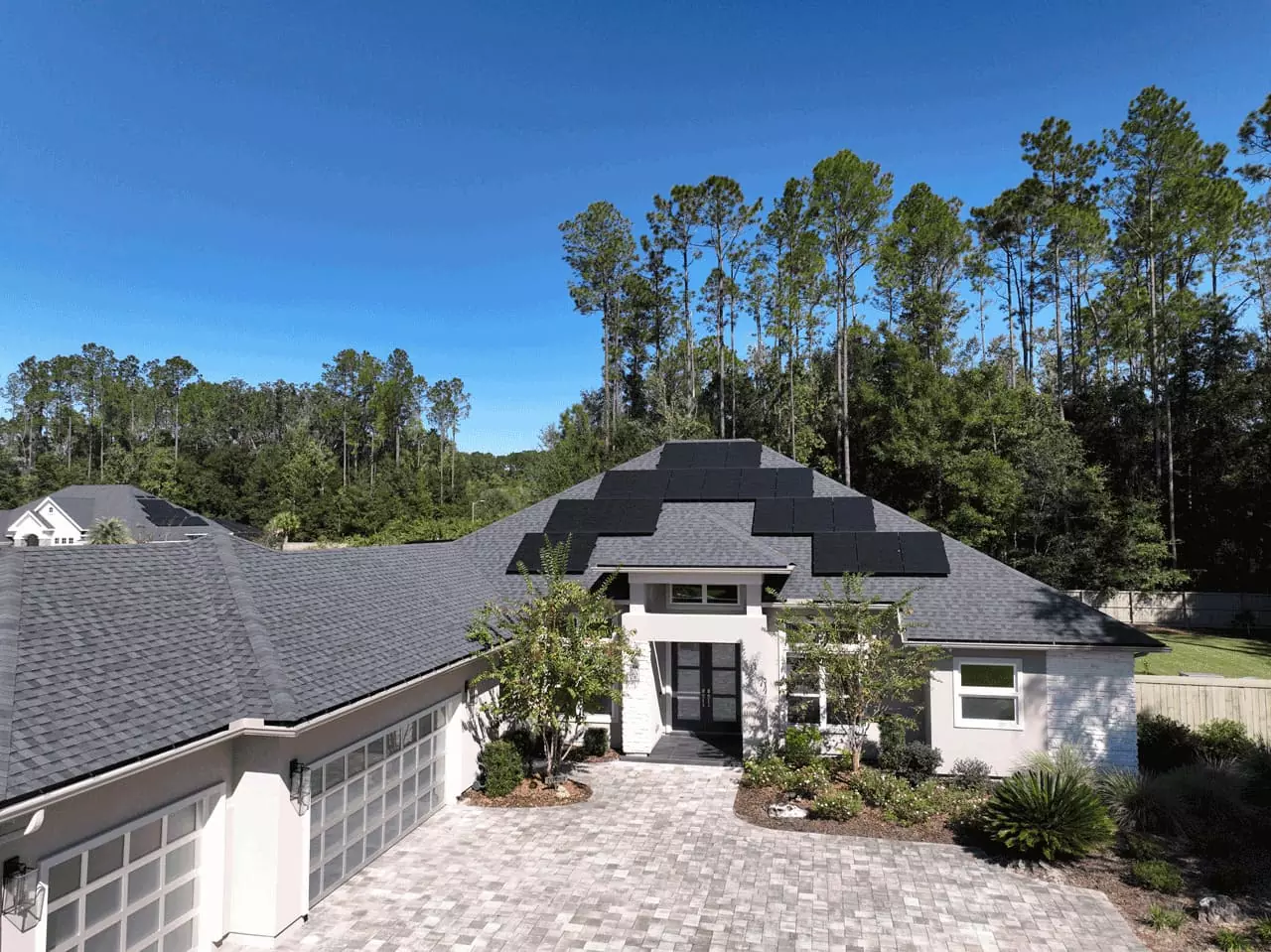The growing adoption of solar energy has led to increased curiosity and concerns about its potential health effects. This article aims to address these concerns and provide evidence-based information on the safety and benefits of solar energy. In the following sections, we will explore:
- Electromagnetic fields (EMFs): understanding the minor electromagnetic radiation created by photovoltaic solar panels and how it compares to common RF (radiofrequency) radiation.
- Toxic chemicals and materials: examining the myths and realities of toxic substances in solar panels and their potential impact on human health.
- Solar panels and cancer risk: debunking the fears that solar panels could cause cancer, based on extensive research and studies.
- Comparing solar energy to fossil fuels: a look at how solar energy is a safer and more environmentally friendly alternative to traditional fossil fuel sources.
- Residential and commercial use of solar energy: exploring the diverse applications of solar energy from home use to industrial-scale production.
- Final assurance of safety: a conclusive statement on why solar panels are a healthy, safe, and effective energy source.
Understanding the real health effects of solar energy
With massive amounts of electricity being produced on rooftops around the world, many people are starting to wonder whether or not there are any major solar energy health effects on humans.
In reality, the minor electromagnetic radiation created by (PV) photovoltaic solar panels is no different, and even less present, than the RF (radiofrequency) radiation emitted from the power lines connecting your property to the energy grid.
While selling solar panels for home use in Florida, we hear many concerns from our neighbors, citing things like electromagnetic fields, toxic chemicals, and even potentially fatal diseases caused by renewable energy systems.
Thankfully, with new technologies, emerging solar panel recycling programs, and ongoing positive equity benefits, going solar has never been better for the environment, human health, and your investment portfolio.
In this article, we will answer common questions, clear up vital information, and debunk many of the common myths associated with solar energy and its negative health effects.
Are solar panels safe on your home?
Are solar panels dangerous?
We are always surprised to hear this question when it comes up in conversations with our customers. Even though residential solar has been growing steadily for over a decade without any accredited evidence of electromagnetic danger, it is still interesting to know that many people believe solar panels may be a real threat to human health.
With years of experience and no major customer complaints, choosing a solar company with a solid reputation is the best way to reduce and eliminate any possible dangers that solar panels may present if installed incorrectly. In Florida, PPM Solar exclusively installs high-quality equipment with industry-accepted practices to meet both local building codes and our own set of rigorous standards.
Do solar panels have any health risks?
For those interested in going solar, there are no health dangers when installing solar panels on your property. Although it is true that some solar panels contain metals that are considered toxic in large quantities, it is very rare for humans to become exposed to these elements at any point in the equipment life cycle.
In the best interest of our customers and the planet, PPM does not install solar panels manufactured with toxic materials. Instead, we use LED-free equipment without the Cadmium Telluride sometimes found in modern solar panels. Even further, we do not install high-voltage DC systems in residential neighborhoods.
While any uninformed internet search may send you down the wrong path, we are here to tell you confidently that there are no human health risks associated with rooftop solar panels. Much like in electronics such as phones, computers, and other digital devices, the toxic materials in solar panels only present a threat to human health if sourced, handled, or disposed of incorrectly.

Do solar panels have electromagnetic radiation?
Besides the materials used in the equipment, one of the leading concerns about solar panels’ human health impacts is electromagnetic radiation complications.
If you’re unfamiliar with the term, electromagnetic radiation is a kind of radiation in which electric and magnetic fields (EMF) travel in waves from both natural and man-made sources. Some examples of electromagnetic radiation include radio waves, microwaves, and visible light.
An extremely small and weak electromagnetic field is created whenever electricity is created by solar panels and transmitted to the power grid. While this sort of language may sound harmful to some, the World Health Organization reports that exposure to low-level electromagnetic fields has been studied extensively, with no evidence of any conclusive harm to human health.
In the same sense that cell phones emit low levels of non-ionizing radiation, solar panels are completely harmless to human health. Plus, you don’t carry your solar panels around in your pocket all day. Therefore, while it is true that solar panels create a small electromagnetic field, this should not be a concern for anyone living underneath or near an installation.
Do solar panels cause cancer?
No. In a world where just about everything seems to cause cancer, solar energy adopters can rest assured that their rooftop panels will not create or add any unnecessary harm. For decades, studies have been performed to conclude that there are no associations between solar energy and cancer.
True for rooftop installations and large solar farms, global public health researchers have found that solar panels do not cause cancer at any production level. So if you are watching a large installation go up in your neighborhood and wonder, “do solar farms increase your cancer risk?” you can calm your worries knowing that the effects are negligible, with no major links between the two. As a matter of fact, it is likely that the emission reductions that are offset from your local power plant have a direct benefit for cleaner air in your neighborhood via the reduction of burning of natural gas or coal.
With widespread adoption, solar panels may even help mitigate some of the health and cancerous risks associated with traditional forms of energy production, such as pollution from arsenic, mercury, and other toxic chemicals – locally and globally.
If you want to:
👉 ensure you’re getting the best and latest technology,
👉 feel comforted, educated, and safe
👉 deal with a local company that is always available for all your future needs
PPM is the right choice for you, as we were for over 1,000 other Florida residents who chose our team to install their solar arrays.
Click the link below to schedule your FREE consultation with one of our solar specialists today!
GET MY FREE QUOTE IN ONE DAY
Is solar energy safer than fossil fuels?
As a carbon emission-free source of energy with very few moving parts, solar panel system installations have little impact on those around them. Solar energy is a much stronger alternative for human health than electricity production from fossil fuels like coal and natural gas.
With a warranty period of 25 years and an expected lifespan of 30+ years, the environmental payback for a single solar energy system in Florida is surprisingly significant. Even when considering transport, manufacturing, and installation, residential solar systems can offset their own environmental impact in under one year, with nearly 50 pounds of carbon sequestered every year.
Residential and Small-Scale Production
When was the last time you saw someone operating their own power plant? While we associate the term “power plant” with large industrial buildings, smokestacks, and toxic fumes, the truth is that residential solar energy and battery installations can also qualify for the definition of a power plant.
Opening the doors for small-scale emission-free power production, residential solar systems can keep homes electrified when grid energy is unavailable. As blackouts and outages can occur as the result of extreme weather events, solar energy’s rooftop clean power production can help keep life-sustaining devices online, invaluable to human health.
Commercial and Industrial Use
With widespread development on roofs and properties across the country, replacing fossil fuel production with solar energy adoption will bring down the number of airborne pollutants currently causing harm to humans and the environment. Fewer pollutants in the atmosphere reduce the risk of many diseases, including respiratory infections, lung cancer, pregnancy risks, and more.
From residential rooftops to commercial solar panels in Florida, the PPM mission remains to promote a cleaner future at all energy production and use levels. By helping those in our state and surrounding areas go solar, together, we can help prevent more of the human health risks already plaguing the larger energy industry today.
Working to increase our customer’s energy independence, we understand solar’s critical role in power resilience for homes and at scale. With wars overseas causing international energy crises, increased solar production is the perfect solution to reduce foreign fossil fuel dependency and avoid further geopolitical conflicts that could impact human health.

Final Words
In summary, solar panels are a healthy, safe, and effective alternative to other energy sources. Whether solar panels are installed on your roof or across the street from your home, you do not need to worry about any adverse effects that could negatively impact your health.
While it is true that some of the metals used to create solar panels can have detrimental effects on both human and environmental health, residential equipment contains very small amounts of these elements, and you will not be exposed to them while they are producing electricity on your roof. Even more, the overall life cycle of solar is much better for global health concerns than continued investment in fossil fuels.
If you are in Florida and interested in the installation of solar panels, batteries, or a Tesla сar сharger, PPM is here to help with all of the equipment you need to safely join the renewable revolution. Please do not hesitate to contact us today at (866) 828-3337 to learn more.
FAQ
Do solar panels have any health risks?
Solar panels are generally considered safe and pose no known health risks when installed and handled correctly. Proper installation and adherence to industry regulations ensure that the panels function safely, without any adverse effects on health.
Do solar panels leak toxic chemicals?
No, solar panels do not leak toxins when they are in use on your roof. Solar panels are designed and engineered to contain all materials safely within their encapsulation. They do not leak toxic chemicals. High manufacturing standards and rigorous testing ensure that the materials remain contained throughout the lifespan of the panels.
What are the negative effects of using solar energy?
While solar energy is one of the most sustainable and environmentally friendly energy sources, some potential negative effects may include energy and resource-intensive manufacturing processes and land use concerns. However, these effects are often minimal compared to the positive environmental impact of using solar energy.
How do you handle solar panel safety?
Solar panel safety is managed through strict adherence to safety protocols and guidelines, from design to installation. Professional training, utilization of safety equipment, and compliance with industry best practices ensure a secure and safe installation process.
Are solar panels safe on your home?
Yes, solar panels are safe when installed on homes. Careful design and installation, following local building codes and regulations, ensure structural integrity and safety. Properly installed solar panels not only provide clean energy but are also a secure addition to any home.



